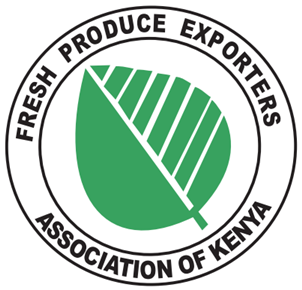- January 27, 2025
- Posted by: admin
- Categories: Capacity Building, Compliance & Standards, General Information
Update
The European Commission has adopted revised marketing standards for fruit and vegetables. Under the new rules, the country of origin, which previously had to be indicated for fruit and vegetables, must now also be indicated for dried fruit, nuts, and ripened bananas. The revised rules also allow fruit and vegetables that do not meet marketing standards to be sold for further processing or animal feed. These changes aim to support the EU’s Farm to Fork Strategy goals of improving consumer information and reducing food waste.
What is changing?
Specific standards are set out in the Annex to Regulation 2023/2429 for:
- apples
- citrus fruit
- kiwifruit
- lettuces/endives
- peaches/nectarines
- pears
- strawberries
- sweet peppers
- table grapes
- tomatoes
- bananas.
The main changes introduced by the new Regulation are as follows.
One set of rules
Rules on marketing standards were previously spread across Regulations 1666/1999 (grapes), 1333/2011 (bananas), and 543/2011 (other fruit and vegetables). These are now merged into a single Regulation.
Indication of origin
Under the new rules, the following products, which were previously not required to indicate their country of origin, must now do so [Combined Nomenclature (CN) codes in brackets]:
- dried fruits (within (ex) 0813)
- dried figs (0804 20 90)
- dried grapes (0806 20)
- ripened bananas (0803 90 10)
- non-cultivated mushrooms (0709 51 to ex 0709 56 and 0709 59)
- capers (0709 90 40)
- bitter almonds (0802 11 10)
- shelled almonds (0802 12)
- shelled hazelnuts (0802 22)
- shelled walnuts (0802 32)
- shelled pistachios (0802 52)
- shelled macadamia (0802 62)
- shelled pine nuts (0802 90 92)
- pecans (0802 99 10)
- other nuts (0802 99 90)
- dried plantains (0803 10 90)
- dried citrus (0805)
- mixtures of tropical nuts (0813 50 31)
- mixtures of other nuts (0813 50 39)
- saffron (0910 20)
- fruit and vegetables that have undergone any preparation beyond trimming, as indicated in the applicable United Nations Economic Commission for Europe (UNECE) standard; or not intact, making them ready to be consumed fresh or cooked (formerly called “ready to eat” or “kitchen-ready” fruit and vegetables, also known in the industry as 4th gamma/range products). These 4th range products do not have to comply with marketing standards beyond the indication of origin.
Banana standard
The Regulation aligns the EU standard to the Codex Alimentarius standard, but omits the requirement from the Codex standard to have a minimum of four fingers by hand or cluster, to prevent food waste (Art. 4(2)).
Products that do not need to conform to marketing standards
Products that do not need to conform to marketing standards (Art. 5) are those:
- intended for industrial processing
- sold to consumers for personal use and intended for processing
- 4th range products
- intended for animal food/non-food use.
Providing information along the supply chain
The information required according to marketing standards must be shown on the side of packaging (printed directly or on a label) (Art. 6). For goods shipped in bulk, the information must be given in a document accompanying the goods, or shown on a notice displayed in an obvious position inside the means of transport.
Invoices and accompanying documents must include the name of the product in the country of origin and, where required by specific marketing standards, the class (Extra; Class I; Class II), variety, and commercial type of product.
Why?
These changes in rules aim to achieve the EU’s Farm to Fork Strategy goals of improving consumer information (through mandatory indication of origin) and reducing food waste (by exempting certain products from the need to comply with marketing standards).
Timeline
The new rules apply from 1 January 2025.
What are the major implications for exporting countries?
The marketing standards require suppliers of ripened bananas, dried fruits, and nuts to include information on the origin of these products in documents accompanying shipments. This also applies to products that have undergone preparation beyond trimming. It potentially reduces food waste by allowing fruit and vegetable products that do not comply with the requirements of Class II of the UNECE marketing standards, but that are still edible, to be marketed for processing or for animal feed.
Recommended Actions
Suppliers of ripened bananas, dried fruits, nuts, and fresh products prepared beyond trimming (as defined by UNECE standards) should ensure their labelling indicates the country of origin from 2025.
Background
For more information see EU marketing standards explained.
Regulation 2023/2430 lays down detailed rules on how Member States must organise and conduct checks to ensure that fruit, vegetables, and bananas comply with EU marketing standards (see Controls of marketing standards for fruit and vegetables).

